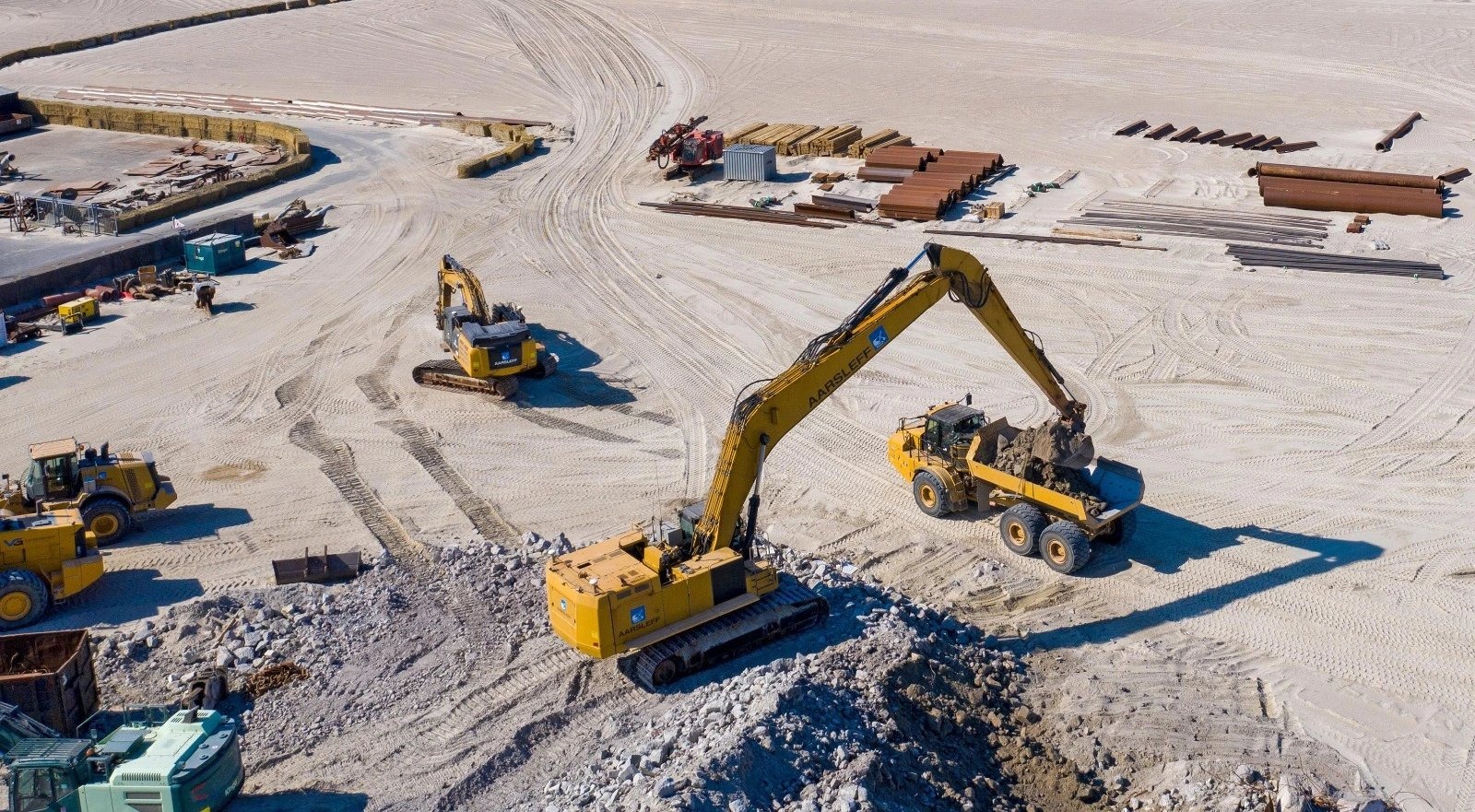

Denmark’s Construction Boom: The Need for Imported Manpower
- trienkhaiweb
- 15 February, 2024
- 0 Comments
Denmark’s construction sector is experiencing a vibrant upsurge, fueled by significant infrastructure projects and a thriving housing market. As a result, the industry faces a growing demand for skilled manpower, prompting many Danish construction companies to consider supplementing their domestic workforce with imported labor. This article delves into the latest trends and details surrounding labor importing practices within the Danish construction sector and highlights the crucial role of manpower in driving Denmark’s development.

The Shortage of Skilled Manpower in Danish Construction
Despite a relatively high domestic employment rate, Denmark’s construction industry contends with a persistent shortage of skilled labor within specific trades. This manpower scarcity is particularly pronounced in areas such as carpentry, masonry, electrical work, and plumbing. Several factors contribute to this shortage:
- Aging Workforce: A significant proportion of Denmark’s construction workforce is approaching retirement age, leading to a dwindling pool of experienced workers.
- Skills Mismatch: The Danish education system doesn’t fully align with the specific skill set that modern construction projects often demand.
- Competition from Other Industries: Construction can face competition from other sectors attracting workers with transferable skills.

The Benefits of Importing Construction Manpower
Importing labor from abroad offers a viable solution to Denmark’s manpower shortage. Some key benefits of this strategy include:
- Access to a Wider Talent Pool: Expanding the talent search beyond Denmark’s borders opens up avenues to reach a larger pool of skilled workers from diverse backgrounds.
- Filling Critical Skills Gaps: Targeting specific countries known for expertise in certain construction trades can help Danish companies address critical skill shortages.
- Boosting Competitiveness: A sufficient workforce empowers construction companies to take on larger projects, bid more aggressively, and potentially reduce overall costs.
- Supporting Economic Growth: Meeting manpower needs allows construction projects to proceed as planned, stimulating other sectors and contributing to Denmark’s overall economic well-being.
Where Does Denmark Source its Imported Manpower?
Danish construction companies turn to various countries to source skilled laborers. Primarily, the focus has been on attracting manpower from within the European Union (EU) due to the freedom of movement for workers within this economic bloc. Countries like Poland, Romania, and Bulgaria have become significant sources of imported construction labor for Denmark. Additionally, specialized skills shortages sometimes lead companies to look further afield to countries in Asia and Eastern Europe with recognized expertise in particular construction trades.

Regulations and Ethical Considerations in Manpower Importing
The Danish government has implemented regulations to ensure fair labor practices and protect workers’ rights when companies import manpower for its construction industry. These regulations include:
- Equal Pay and Working Conditions: Imported laborers are entitled to the same wages, benefits, and working conditions as Danish workers in comparable positions, preventing exploitation.
- Housing and Social Integration: Companies importing labor often play a role in securing suitable housing and supporting the social integration of foreign workers to ensure a smooth transition.
- Worker Safety: Prioritizing on-site safety is mandatory, and all workers, regardless of origin, must receive the necessary training and equipment.
The Future of Manpower in Danish Construction
Denmark’s ongoing construction boom indicates a continued need for skilled manpower to achieve its ambitious infrastructure and development goals. It’s likely that importing labor will remain an integral part of the solution. Therefore, Danish construction companies must maintain focus on developing long-term strategies for effective manpower management. This includes continued collaboration with the government, educational institutions, and labor organizations to enhance worker pipelines, provide adequate training, and ensure fair practices in labor importing.
Conclusion
The skilled manpower provided by imported laborers plays a vital role in sustaining the vitality of the Danish construction industry. To fully capitalize on its construction sector’s potential, it’s essential that Denmark balances the need for manpower with sound policies that safeguard workers’ rights and uphold ethical labor practices.
Related articles
Employee Empowerment with Quinn Vietnam Manpower
In today’s dynamic business landscape, organizations are increasingly recognizing the importance of employee empowerment as a key driver of success. Quinn Vietnam Manpower, a leading provider of manpower solutions in Vietnam, understands that empowered employees are more engaged, productive, and committed to organizational goals. This article delves into the concept of employee empowerment, exploring its…
Quinn Vietnam Manpower’s 5 Steps to Successful Coaching in 2025
In today’s dynamic business environment, maximizing your manpower’s potential is crucial for success. Effective coaching programs are key to unlocking this potential, fostering employee growth, and driving organizational performance. Quinn Vietnam Manpower, a leading provider of manpower solutions, presents a comprehensive guide to successful coaching in 2025. Whether you’re leading coaching sessions yourself or partnering…
Functional Skills: A Guide for Quinn Vietnam Manpower’s Workforce in 2025
In today’s competitive job market, possessing strong functional skills is more critical than ever. For Quinn Vietnam Manpower, equipping our manpower resources with these essential skills is key to their success and the success of our partner businesses. This comprehensive guide explores the importance of functional skills, particularly in Math and English, and how Quinn…
Level Up Your Workforce: Gamification Strategies for Quinn Vietnam Manpower
In the competitive landscape of Vietnam’s manpower industry, attracting, engaging, and retaining top talent is more critical than ever. Quinn Vietnam Manpower recognizes the power of innovative solutions, and gamification is emerging as a game-changer in the realm of human resources. By integrating game mechanics and elements into various HR processes, Quinn Vietnam Manpower can…
3 Communication Skills Every Manager Needs to Thrive
In today’s rapidly evolving business landscape, effective communication skills are more critical than ever for managers. Whether you’re a seasoned leader or newly promoted, honing your communication abilities can significantly impact your team’s performance, morale, and overall success. This article delves into three essential communication skills every manager needs to master in 2025 and highlights…
Harnessing the Power of Insights with Quinn Vietnam Manpower
In the dynamic landscape of 2025, where businesses face unprecedented challenges and opportunities, the ability to gain profound insights is more critical than ever. For project management (PM) in Vietnam, this rings especially true. Quinn Vietnam Manpower, a leading provider of manpower solutions, recognizes the crucial role of insights in driving project effectiveness and organizational…







